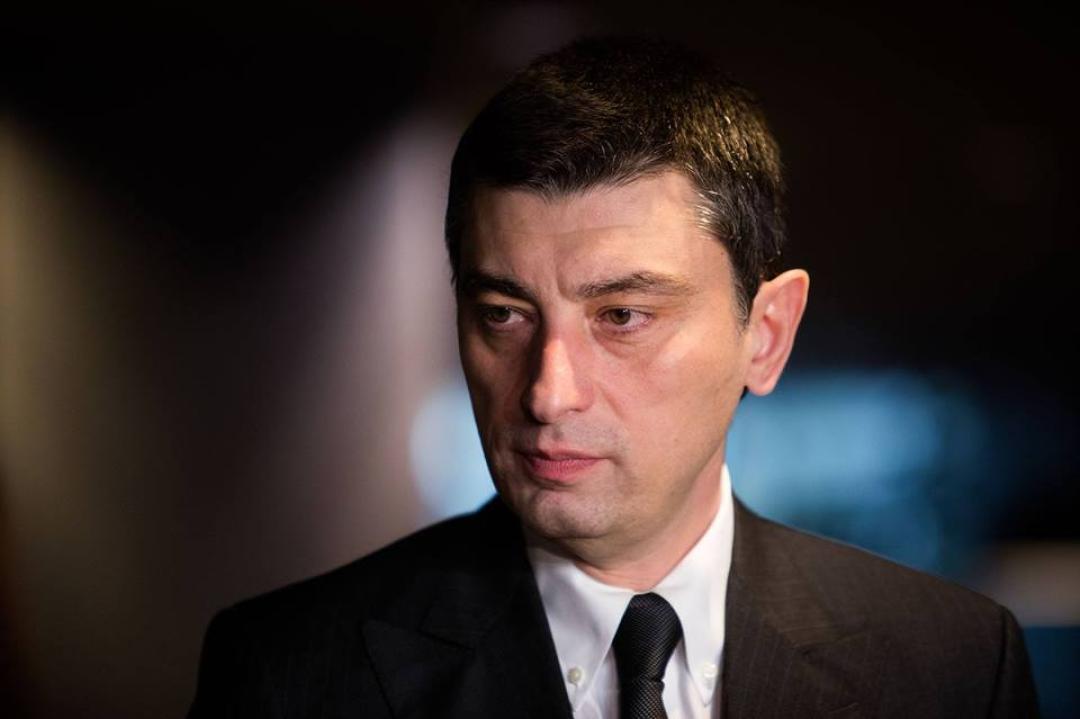
Gakharia concludes a number of meetings with high-ranking officials in Brussels

On 29 September, Georgia’s Prime Minister Giorgi Gakharia conducted a visit to Brussels where he met with a number of high-ranking officials including the NATO Secretary General Jens Stoltenberg, European Council President Charles Michel, President of the EU Parliament David-Maria Sassoli and the EU Commissioner for Home Affairs Ylva Jojansson. Georgia’s future within NATO and the EU was discussed during the meetings.
At the meeting with Stoltenberg, the NATO Secretary General praised the reforms Georgia has implemented over the years, particularly emphasising the importance for Georgia to continue implementing judicial reforms and democratic oversight of the security services. “The good thing is that we see that Georgia and NATO are now working more closely together then they have ever before and as we have stated, there is more NATO in Georgia but also more Georgia in NATO than we have seen before and, step by step, we are doing more together. Recently, we have focused on the Black Sea Region, maritime capabilities, working together with our maritime command in NATO and the United Kingdom, and some support for coast guard, port visits by NATO ships, and we also recognised during our conversation today the strategic importance of the Black Sea Region for Georgia, for NATO allies,” Stoltenberg said. He added that NATO is looking to expand cooperation with Georgia, particularly in the fields of air traffic data, addressing hybrid threats and holding joint exercises in the Black Sea Region.
At the meeting with Michel, Gakharia underlined his government’s priorities towards further EU integration, namely: 1) development of democracy and state institutions; 2) strengthening Georgia’s strategic role in Black Sea region and 3) building better transport and communication ties with the EU. Gakharia also outlined at the meeting that Georgia could become an important alternative transport and telecommunication centre for the EU as well as a key energy corridor. As for Michel, he wrote on his official Twitter page that he had an “excellent discussion on how to further intensify EU-Georgia relations'.”
The new initiative of the Eastern Partnership was also discussed with Michel according to the press service of the Georgian government. Speaking with the media, Georgia’s Foreign Minister David Zalkaliani stated that Georgia has an ambitious plan towards integration with the EU because it is one of the country’s main foreign policy priorities written into Georgia’s Constitution. “We need more physical integration in various parts of the economy: transport, energy, communication, more participation in EU programmes and agencies. Georgia should act as an already aspirant country and the expectations both in Georgia and here [is] that the country will have the fastest process of EU integration were underlined at all our meetings,” he stated.
In the meeting with Sassoli, the upcoming elections and election reform were the main topics of discussion. Gakharia underlined that the election will be held in a free, fair and transparent environment. He also invited observers from the European Parliament and guaranteed their safety in the country.
The main topics discussed at the meeting with the EU Commissioner for Home Affairs Ylva Jojansson were labour migration and possibility for the Georgian citizens to work legally in the EU. Commissioner Jojansson positively assessed the new regulations for Georgians travelling to the EU that was approved by Parliament at the beginning of September and Georgia’s cooperation with Europol and Frontex.
In addition, the EU Commissioner for Neighbourhood and Enlargement Olivér Varhelyi and Gakharia signed two agreements worth €129 million to assist Georgia in coping with the Covid-19 outbreak and its impact on the country's economy. The first agreement was the Covid-19 Resilience Contract, where Georgia will receive €75 million in grants aimed at supporting the country’s Anti-Crisis Economic Plan. The provisions of the agreement include social assistance for vulnerable households and support for businesses who have retained jobs in difficult times. The grant will also help increase the number of beds in intensive care units to prepare for a potential increase in infections.
The second agreement was the “EU4 Integrated Territorial Development programme.” It states that Georgia will receive €54 million in grants targeting the economic development of regions outside the capital. The programme will focus on local authorities and concrete actions for citizens, such as rehabilitating or constructing infrastructure in urban zones, encouraging tourism development, and supporting small and medium sized companies and innovation. It includes measures to support decentralisation and involving citizens in the decision-making process at the local level.
See Also


Armenia Records 5.9% GDP Growth in 2024, Missing 7% Goal

Yerevan Balances Strategic Ties with Both US and Russia, Says Foreign Minister

FM Mirzoyan: Peace Deal with Azerbaijan Is Within Reach

Pashinyan and Erdogan Hold Call, Reaffirm Commitment to Ongoing Dialogue

